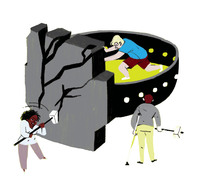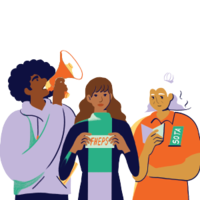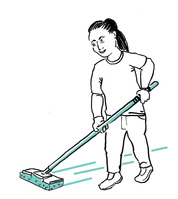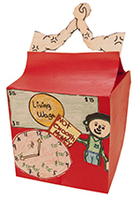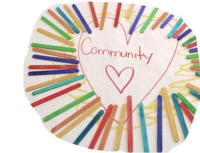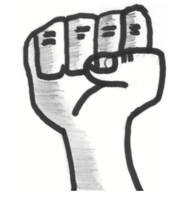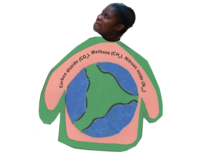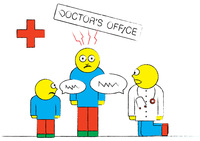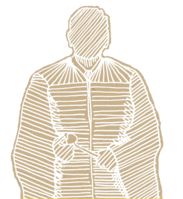2017
‘Newark’s ‘genius’ brought public into the inner workings of development | Di Ionno’
NEW JERSEY REAL-TIME NEWS
November, 9, 2017
Liz Del Tufo, the grand dame of Newark history, tells this story of Damon Rich, the city’s former urban planner, who last month received a prestigious and lucrative fellowship from the MacArthur Foundation.
‘Landscape Architect Kate Orff and Urbanist Damon Rich Awarded 2017 MacArthur “Genius” Grants’
Arch Daily
October, 11, 2017
The MacArthur Foundation has announced the 24 recipients of their 2017 MacArthur Fellowships Grants (sometimes referred to as ‘Genius’ Grants), and for the first time since 2011, the list includes individuals from architectural fields: urban planner and designer Damon Rich and landscape architect Kate Orff.
Established in 1981, the grants are awarded annually “to encourage people of outstanding talent to pursue their own creative, intellectual, and professional inclinations.” This year’s fellowships come with a $625,000, no-strings-attached stipend for individual pursuits.
‘The Fun Palace 017: Christine Gaspar’
Impact Design Hub
August, 18, 2017
Christine Gaspar is the Executive Director of CUP, The Center for Urban Pedagogy based out of New York City. In this interview, we learn about Christine’s beginnings in environmental studies and how this led her to take a keen interest in policy. She sees the potential for wonderful creativity in policy which is what she helps cultivate at CUP where her team is creating a new visual language for policy. She is a champion for equity and social justice and believes that everyone deserves to know their rights. Their work is inspiring and necessary. This conversation took place in CUP’s headquarters in Brooklyn. We hope you enjoy it!
‘Teens look to get out the vote’
The Hunts Point Express
July, 5, 2017
The teens partnered with NYC Votes and the Center for Urban Pedagogy to create “Our Voice, Our Choice,” a 14-page guide they introduced at a June 29 roundtable at the Bronx Music Heritage Center in Soundview.
‘Zoning Game Lets Players Develop a 2,000-Square-Foot Lot’
Next City
April, 11, 2017
The tool comes from the Center for Urban Pedagogy (CUP) — the same nonprofit that urged designers working in cities to consider social impact and “not be a Dick.” CUP also broke down the “big picture” of NYC welfare, and created a game to help Harlem residents understand zoning and their rights.
‘A new tool teaches NYC developer lingo by making you an all-powerful urban planner’
Architect’s Newspaper
April, 4, 2017
Building on the What is Zoning? toolkit, CUP’s What is FAR? helps users get savvy with developer lingo—particularly the concept Floor Area Ratio (as readers may know, FAR determines the height and bulk of buildings). Language is power, and CUP, along with eight community partners, reasoned that it’s helpful for ordinary folks to speak the language of bureaucrats and capitalists when discussing changes in their neighborhoods.
‘America Has Its Problems, But Design Can Help Solve Them’
Wired
February, 1, 2017
Every designer brings personal experiences and biases to a project, but effective designers put them aside and strive to understand the people they’re working for. “How do you as a designer show up in a way that’s being an ally and an accomplice first?” says Gaspar of CUP.
A few years ago, Gaspar and her team were helping develop a pamphlet that would help public housing residents understand their rights. Her designer chose a particular shade of blue for the typography, which elicited a strong reaction from the community members. “They said, ‘You can’t use that color,’” Gaspar recalls. “That’s the color of the Housing Authority.” It was a simple mistake and easily rectified, because Gaspar’s team involved its constituents in the design process from the very beginning of the project.
‘What can we learn from lottery spending’
MIT News
January, 26, 2017
The City Digits: Local Lotto project is an ongoing collaboration with Laurie Rubel, associate professor of secondary education at CUNY’s Brooklyn College, and the Center for Urban Pedagogy, a Brooklyn-based nonprofit organization led by MIT architecture and urban planning alumna Christine Gaspar MA ’04 MCP ’04 that uses the power of design and art to increase meaningful civic engagement. The project has two goals: to develop and pilot innovative tools to help improve data literacy for high school students and to educate them about issues that directly affect their communities; and to examine the economic effect of the state-sponsored lottery on low-income neighborhoods in New York City.
‘Nueva guía para obtener acceso a vivienda popular’
NY1 Noticias
January, 12, 2017
“No es solo el problema de viviendas asequibles, sino también es el problema de mejorar las situaciones financieras de los neoyorquinos, y entonces de esa idea nació ese proyecto”, señaló Oscar Núñez, del Centro de Pedagogía Urbana.
‘Agencies Create New Guide on Steps to Take to Apply for Affordable Housing and Putting Together a Strong Application’
NYC Department of Housing Preservation and Development
January, 10, 2017
Based on the initial findings, HPD, DCA and the Center for Urban Pedagogy (CUP), with support from Citi Foundation and the Mayor’s Fund to Advance New York City, also created Ready, Set, Apply: Getting Ready for Affordable Housing in NYC (Spanish), a friendly and approachable guide outlining the steps to apply for affordable housing and how to prepare a strong application.
